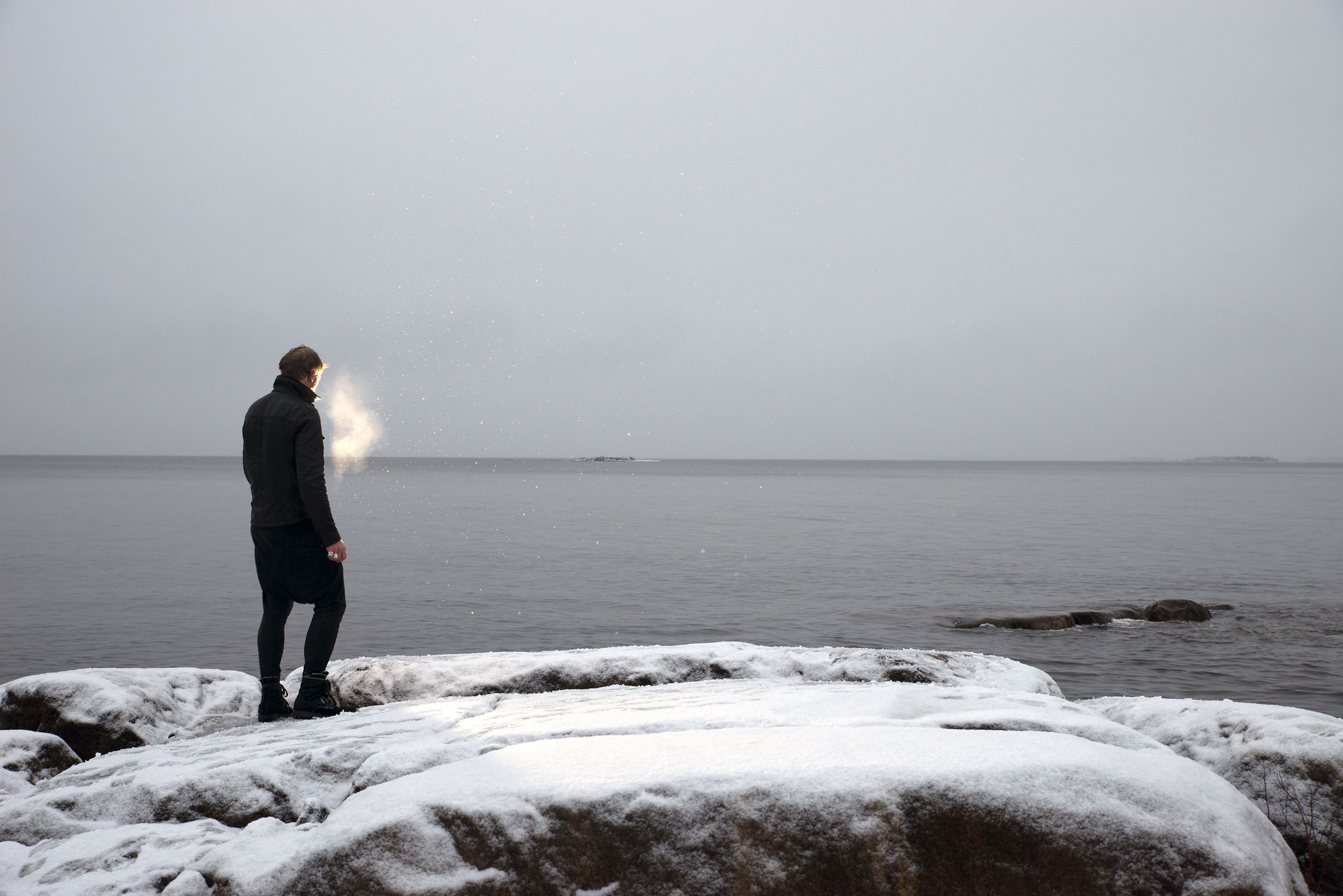LCF PhD Researcher Profile: Paul Bevan – Photographic Practice and the Status of Superposition

- Written byLCF Research
- Published date 22 November 2021

Continuing with our series of PhD profiles, we spoke to Paul who is currently working on installing his new exhibition in the Fashion Space Gallery at London College of Fashion, UAL opening on Thursday 2 December 2021.
Paul Bevan is a lecturer, artist, photographer and writer who is currently in the final stages of completing a PhD at LCF. Having studied BA and MA Fine Art, Paul has maintained a particular interest in photography and time-based media (including performance), within fashion and fine art contexts and publications.

Paul has worked in education for over 20 years, developing and leading courses at both undergraduate and postgraduate level in art, design, fashion and communication. He established the BA (Hons) Photography course at Southampton Solent University in 1997, and since coming to LCF in 2002, has led numerous undergraduate courses as Programme Director for Fashion Image until 2009, when he took leadership of the MA Fashion Photography.
Paul has collaborated on exhibitions, creative projects and industrial initiatives throughout his career so far. He has exhibited and presented his work internationally, contributing significantly to thinking in his field.
from Studies in Meta-Photograph, Düsseldorf (2016)
What is the title of your PhD thesis?
Photographic Practice and the Status of Superposition: Image, Observation, Event.
How does your upcoming exhibition at LCF’s Fashion Space Gallery relate to your PhD thesis?
The PhD is practice-based, and throughout the study there were a series of iterations as intended cycles of practice-based research outcomes. These were developed as individual progressions of the thesis, through which the theory of superposition is a continuous research initiative - that is iterated in aspects of production, in the work and at its dissemination. Each iteration leads to the next in some way, taking forward new findings or outcomes that have been made, observed, or performed, and often using the same material as a sustainable method. The iteration in Fashion Space Gallery is no different in this respect, except that it is the final iteration, it is part of my examination process, and it is on home ground! Others have been in Finland, Iceland, France, for example. So, I am delighted to be able to show some of this work to my students and colleagues.
What has been the highlight of your PhD journey?
I have enjoyed the lived-experience of the PhD. It has been part of my life since 2014, always there and itself in a state of superposition. Part of the PhD remit has been to collapse that status through the matter of the PhD becoming realised. It is interesting that it seems quite simple now, but I think I can only make that observation in hindsight. That sentiment also tells me that the PhD is done. The experience has definitely had a positive impact in personal and professional ways, and I think I can even say that I enjoyed the purpose of it. I should say that I am grateful for the opportunity and the support that I had for this.
from In Superposition: Ice and land, Iceland (2018)
What have been some of the challenges of conducting practice-based PhD research?
I think I managed to mitigate the usual challenges of time, money and space logistics by bringing the PhD into my working life and my personal life as appropriate. As an artist, I have learnt to be resourceful and responsive and to take creative risks and opportunities. So, whenever I saw an opportunity to further the PhD as part of a wider workshop initiative or experiment, I took it. I think this approach worked for me, especially as a part-time student. The PhD has been a continuous practice, identifiably entangled within other on-going work, as a practicing academic working within a culturally and socially progressive institution. It worked quite well, actually. I started the PhD with an already established practice, but the PhD threshold was a welcome research framework within which to develop a whole new paradigm.
What’s next for you after completing your PhD?
I will continue to develop my work and look for ways to extend the reach and impact of this. I enjoyed the conversation I had with a quantum physicist for example, where we were discussing the same things but from different disciplines. I think we both learnt something from meeting. This kind of exchange or dialogue interests me, and I am keen to make connections both intellectually and socially, developing new networks and useful insights. I made many significant realisations in my study, and found ways of working those into the text or practice; I would like to put this vision and experience to good use, to support my own profile and continue to champion that of others.
I hope to be able to contribute to the PhD culture at the university, and especially to support the development of practice-based PhD in media and communication at the college. As a course leader at post-graduate level (with a PhD, hopefully), I am well-placed to help progress this.

from Zoopraxiscope, from In Superposition: Ice and land
Iceland, Paris (2019)
This story is part of a series that spotlights some the LCF Research staff and students contributing to the LCF Research community.

